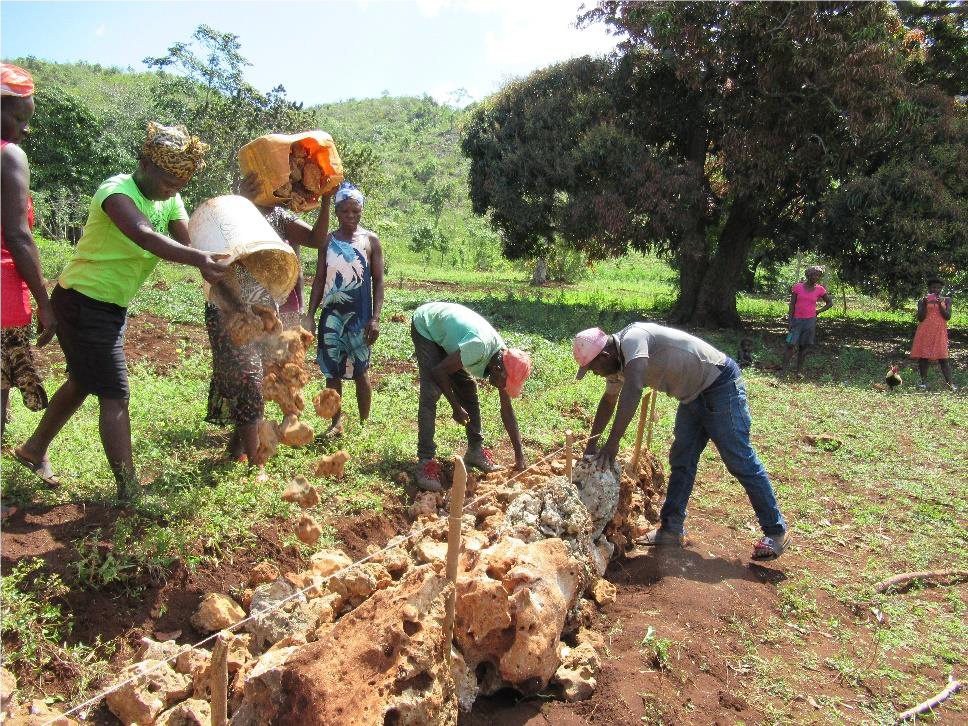
Making the Best of Challenging Realities
Peron sees hope in farming now that he’s got a handle on soil conservation techniques. He, his wife and their six children farm his father’s land, which has been in the family since 1961. He has regularly lost his crops to drought, rain and high winds, and was more than ready for a change.
He participated in a pre-COVID19-lockdown training event on “agro-ecological farming” and building anti-erosion structures. Peron was eager to try building a rock barrier on his land that would not only keep topsoil from washing or blowing away, but also retain moisture for crops. Now that it’s in place, he plans to plant sugarcane behind it as an additional windbreak.
Since local farmers have traditionally grown mainly corn and beans, the workshop also covered a variety of farming techniques and crops that are more sensible choices for the current realities. It was welcome news that, even considering the harsh conditions they have to work with, there were plenty of practices participants could use to make farming sustainable and productive. In addition to controlling erosion, managing water, and limiting the trees they cut down, participants saw they could invest less time and labor and get better drought resistance and higher yields if they produced vegetables, lima beans, sorghum or bananas.
In short, the fishing-and-farming families of Mole St. Nicolas are doing the best they can in this challenging year of political strife in Haiti, lockdowns, droughts and flooding. Growing Hope, Church World Service and a Swiss organization, Action de Carême Suisse, have all collaborated with local partner GRADAID in raising awareness about COVID19. They distributed masks, gloves, bleach, alcohol, and sanitizer, and encouraged families to build simple “tippy tap” handwashing stations by attaching a gallon jug for water to a wooden post with a short length of rope.
Haiti Mole St. Nicolas
Led by Church World Service and Local Partner GRADAID
